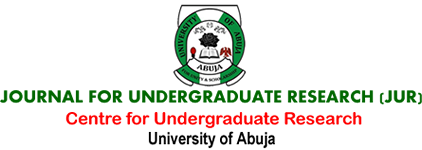Antifungal Efficacy of Garlic (Allium Sativum L.)
on Selected Seed-borne Fungi
Author(s) : Mathew Friday, Elijah Ogenedoro Asarivwo, James Terna Ngor & Toba Samuel
Anjorin
ABSTRACT:
This study aimed to assess the antifungal properties of garlic (Allium sativum L) as a seed dressing substance and chemical on various crops, including cowpea, sorghum, maize, and groundnut, and to investigate its impact on associated seed-borne fungi. The assessment involved in vivo determination of fungal inhibition using garlic aqueous extract via seed culture bioassay. Additionally, the antifungal activity against Aspergillus niger, Aspergillusflavus, and Penicillium chrysogenum was examined through agar well diffusion method atdifferent garlic extract concentrations. Findings revealed that seeds treated with 100% garlic extracts exhibited the lowest incidence of fungal attack, highlighting the potent inhibitory effect of garlic extracts on seed-borne fungi in vivo. In vitro findings showed significant inhibitory effects of 100% garlic aqueous extract on A. flavus, P. chrysogenum, and A. niger, with radial growth reductions of 29.0 mm, 24.3 mm, and 19.7 mm, respectively. Furthermore, garlic aqueous extracts+ adjuvant demonstrated notable inhibition on radial growth, with reductions of 25.3 mm, 26.0mm, and 24.7 mm for P. chrysogenum, A. niger, and A. flavus, respectively. However, garlic paste and Imidacloprid® treatments exhibited the highest inhibitory effects on fungal radial growth. Notably, the inhibition by garlic powder + molasses and the control was significantly lower (p≤0.05) than other treatments. This study suggests the potential of garlic extracts as natural antifungal agents against seed-borne fungi, presenting a possible source of organically based fungicide.
KEYWORD(S):
Antifungal efficacy, Aspergillus flavus, Aspergillus niger, garlic, Penicillium
chrysogenum

